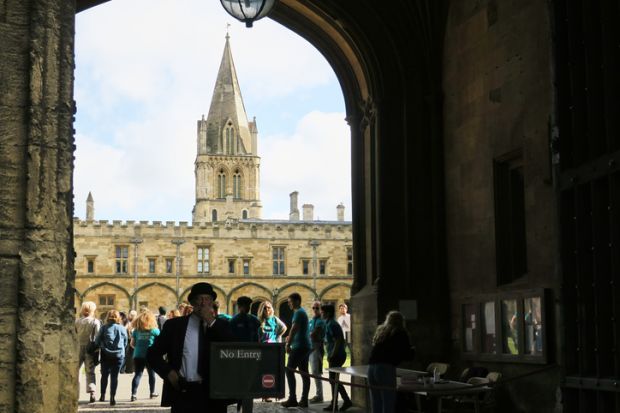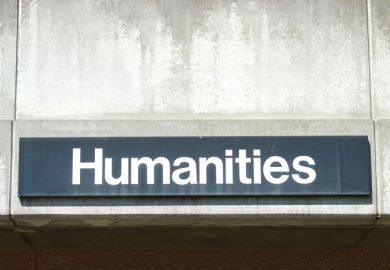Research universities within the UK’s Russell Group should be limited to recruiting no more than 10 per cent of their students from independent schools and the Oxbridge admissions system should be replaced with a merit-based lottery, a controversial new book on the British class system has argued.
In Born to Rule: The Making and Remaking of the British Elite, published by Harvard University Press, the University of Oxford social policy scholar Aaron Reeves and Sam Friedman, professor of sociology at the London School of Economics, say the UK’s most-selective universities – along with its private schools – are still a major factor in the persistence of social and economic inequalities.
According to the sociologists, Oxbridge alumni born in the 1970s are much more likely to feature in Who’s Who? – the society guide to noteworthy people in British society – compared with those born earlier, indicating how the two universities remain “remarkably resilient as the central switchboard of the British elite” despite massively increased graduate numbers from other universities.
In a radical prescription for social mobility, Professor Reeves and Professor Friedman argue that admissions to the universities of Oxford and Cambridge should therefore be overhauled.
Writing in Times Higher Education on 12 September, the authors say the historic Oxbridge interview system should be “replaced by a system in which both universities recruit by putting the best performing 5 per cent of students from across the country into a lottery and then randomly selecting students from this group”.
“The state of Texas in the United States did something similar and it has opened up their flagship universities to underrepresented groups,” they say.
However, this reform would “do little to break the dominance of private schools within Oxbridge”, the authors continue.
“We would propose therefore to also restrict the proportion of privately educated students accepted to study at Oxbridge (and the Russell Group universities more broadly) to 10 per cent, which is the proportion of people in the UK that have attended a private school at some point in their education.”
“This would reduce the proportion of privately educated students at Russell Group universities as a whole by around 50 per cent,” the authors write, stating the impact on admissions would “vary across institutions but would be especially large at places like Durham (38.4 per cent privately educated). Crucially, Oxford and Cambridge would need to make big changes (both have around 30 per cent).”
Without these changes, the UK would be unable to break private schools’ “stranglehold on elite recruitment”, which “makes a mockery of the idea that access to elite positions in Britain is meritocratically achieved”, they argue.
Noting that such a move would “radically limit [universities’} autonomy to recruit the best and the brightest, as enshrined in the Higher Education and Research Act of 2017, the authors add that it is “important to remember that the British government often curtails institutional autonomy in the pursuit of socially valuable goals. Take the banning of discrimination based on gender and race, for example.”
Rejecting claims that it would hinder universities from selecting the brightest students, they add that the cap on privately educated pupils would really see a “shuffling [of] students with similar attainment between largely comparable institutions.
“Some of the private school students now attending Nottingham would go to Essex, for example, while some of the state school students at Essex would go to Nottingham, and we are cautiously optimistic that Russell Group universities would not see a notable difference in ‘student quality’.”
Enacting the changes would have a “broader symbolic value”, they conclude, because it would send a message that “the school you attended should not have a disproportionate impact on your life chances”.




